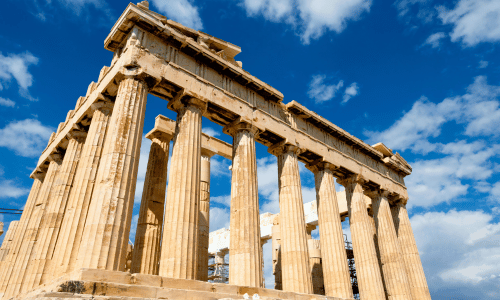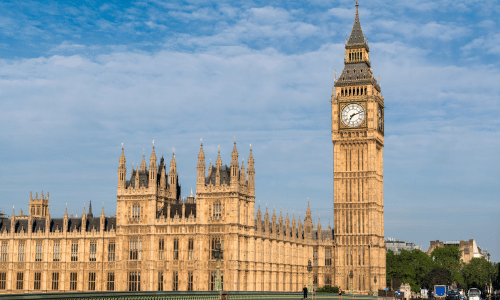Top 10 Strange and Unusual Laws from Around the World
Laws are established to maintain order and ensure the safety and well-being of a society. However, some laws, due to cultural, historical, or environmental reasons, can seem bizarre or even outlandish to those outside of the community they govern. From regulations on naming children to prohibitions against unusual pets, the world is full of strange and unusual laws that might leave you scratching your head. In this list, we dive into the top 10 strange and unusual laws from around the world, exploring the peculiarities that make each of these regulations stand out. Whether born from tradition, unique circumstances, or just a quirky legislative moment, these laws offer a fascinating glimpse into the diverse tapestry of human societies.
1. Chewing Gum Ban in Singapore

Singapore is renowned for its cleanliness, a characteristic partly maintained through strict laws, including the ban on chewing gum. Implemented in 1992, this law prohibits the import and sale of chewing gum in Singapore. The rationale behind this unusual law is to prevent public places from being littered with chewing gum, which was a significant problem in the past, causing maintenance issues in public transit and other facilities.
2. No Camouflage Clothing in Barbados

In Barbados, wearing any form of camouflage clothing is illegal. This law applies to both locals and tourists alike. The reason? Camouflage patterns are reserved exclusively for the Barbadian military. The law aims to prevent confusion or impersonation, ensuring that military attire remains distinctive and respected. Tourists often get caught off guard by this law, and it’s not uncommon for camouflage items to be confiscated.
3. Silent Sundays in Germany

Germany observes a unique tradition known as “Quiet Time on Sundays.” This law, deeply rooted in the country’s cultural and religious practices, mandates that Sundays should be days of rest and silence. As such, activities like mowing the lawn, washing cars, or even recycling bottles are prohibited to maintain the peace. The law reflects Germany’s dedication to ensuring a day of relaxation and quietude for its citizens.
4. No High Heels in Ancient Greek Sites

In an effort to preserve its ancient monuments, Greece has a law that bans the wearing of high heels at these historic sites. The reason is practical: high heels can damage the delicate surfaces of these ancient treasures, some of which are thousands of years old. This law highlights the country’s commitment to protecting its rich historical heritage.
5. Ban on Baby Names in Denmark

Denmark has a pre-approved list of about 7,000 baby names that parents must choose from when naming their child. This law aims to protect children from receiving names that might be considered inappropriate or burdensome. Names not on the list require approval from a government body, ensuring they are suitable and won’t negatively impact the child’s life.
6. No Toilet Flushing After 10 PM in Switzerland

In some apartment buildings in Switzerland, there’s a law that forbids the flushing of toilets after 10 PM. This rule is more about courtesy and noise control in apartment complexes. The intent is to prevent noise that might disturb neighbours during the night, reflecting the country’s high value of respect and privacy.
7. The Haggis Import Ban in the U.S.

The United States has a peculiar law that bans the import of traditional Scottish haggis. The reason? U.S. food regulations prohibit sheep lungs, a key ingredient in haggis, in food products. This law highlights the differences in food safety standards and cultural culinary preferences between countries.
8. No Dying in the Houses of Parliament, UK

A widely cited but somewhat mythologized law in the UK states that it is illegal to die in the Houses of Parliament. While this isn’t strictly enforced or practically enforceable, it reflects the quirky nature of British legislative history. The origin of this ‘law’ is unclear, but it is often mentioned in discussions of unusual British legal provisions.
9. The Salmon Act of 1986 in England and Wales

The Salmon Act of 1986 includes a clause that makes it illegal to handle salmon under suspicious circumstances. This law was primarily aimed at combating fish theft and poaching, making it an offence to receive or dispose of salmon believed to have been illegally fished.
10. No Whistling in Petrolia, Ontario

In Petrolia, a small town in Ontario, Canada, there’s an unusual law that prohibits excessive noise, including whistling. The law, aimed at maintaining public peace, means that loud whistling in public, especially at night, could potentially be met with a fine. While seemingly odd, it reflects the town’s desire for tranquillity.
These top 10 strange and unusual laws from around the world demonstrate how diverse and sometimes peculiar legal regulations can be. Each of these laws, as odd as they may seem, has its roots in cultural, environmental, or societal needs specific to the region. They remind us that what might seem bizarre in one context can be perfectly normal in another. Laws are a reflection of the values, history, and concerns of a community, no matter how quirky they may appear.
Engagement Prompt: “We’ve reached the end of our Top 10 countdown, and we’d love to hear from you! Do you agree with our choices, or is there something we missed that you feel deserves a spot on this list? Let’s start a conversation – comment below with your thoughts and ideas. Your input might just influence our next Top 10





